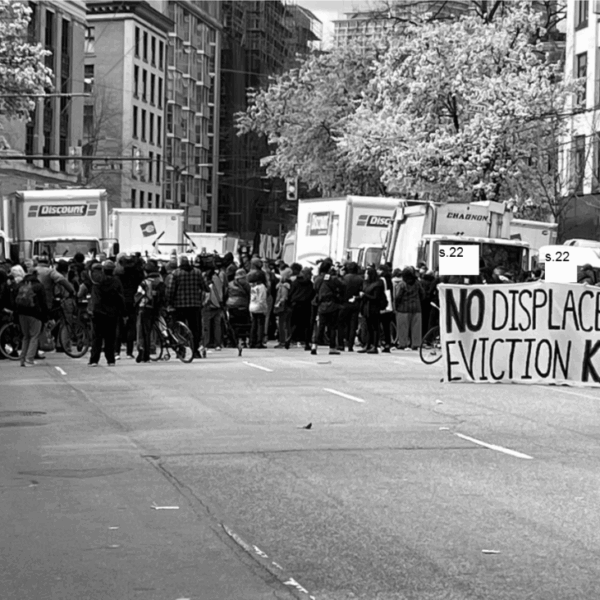Analysis
Grassroots activism has won social housing above the new library, soon to be built on the 700-block of East Hastings. The development will now...
Hi, what are you looking for?


On the evening of April 5, 2023, as the first day of the Hastings decampment operation came to a close, Vancouver Mayor Ken...
Grassroots activism has won social housing above the new library, soon to be built on the 700-block of East Hastings. The development will now...
Over two hundred people packed themselves into the still-empty Salt building at the Olympic Village on Sunday afternoon. They were there to hear from...
This past Saturday, Housing activists established a picket line in front of the Olympic Village condo sales centre, where the City is trying to...
Corporate developers are 'betting' that they can twist enough arms to transform Edgewater Casino into a mega-casino next to BC Place. But resistance has...
The City of Vancouver stands to profit from selling-off housing units at the Olympic Village that were promised for affordable and social housing. The...
The story of Chinese investor impact on Vancouver real estate is neither new nor surprising. But recent changes to real estate taxation within China...
Condo marketer Bob Rennie claims to have sold 128 of 230 condo units up-for-grabs in the latest round of sales at the Olympic Village....
Real estate developers were noticeably upset when, on Jan 20, residents of Vancouver's Downtown Eastside scored a partial but significant victory against the City's...
For the last few years the City has repeatedly claimed that there is no money for housing. As the Mayor said last October when...
BCCLA REPORT ON RCMP | A report released this week by the BC Civil Liberties Association has given a glimpse into what life can be like...